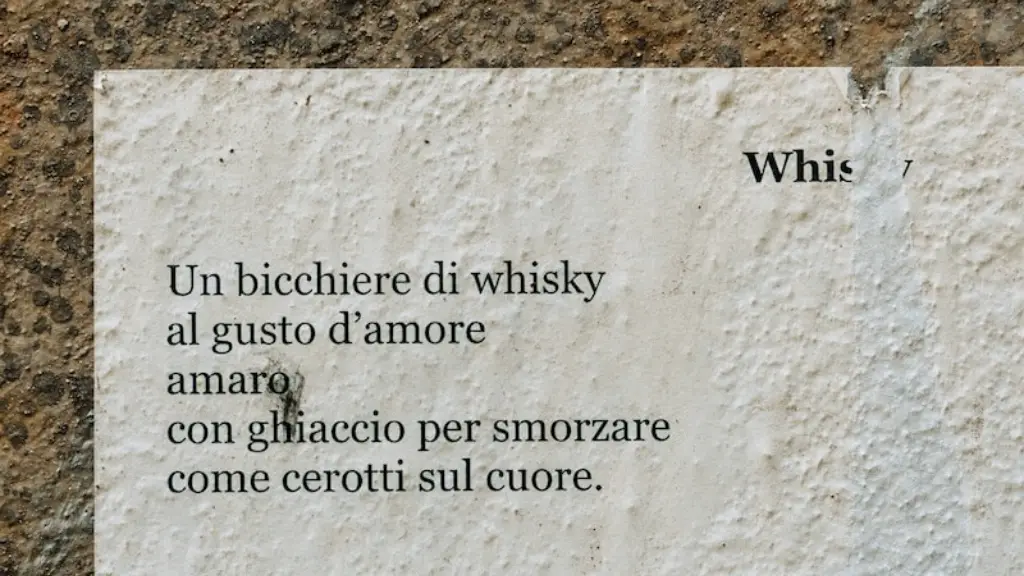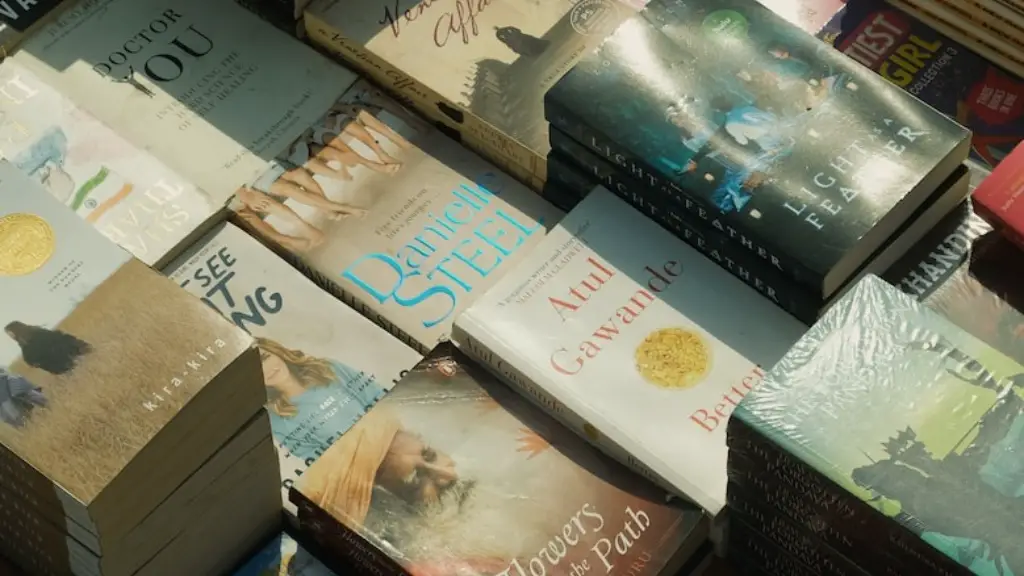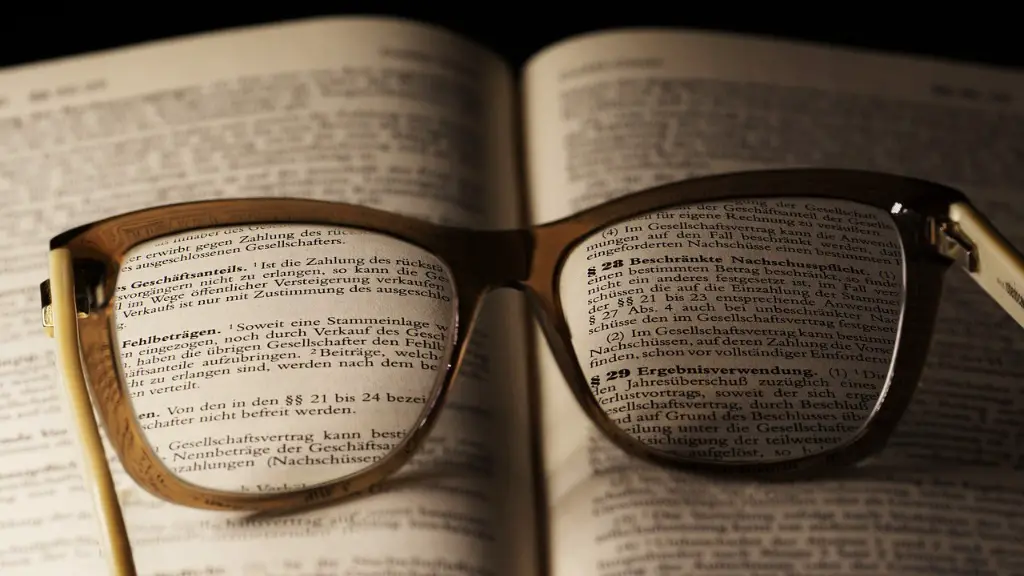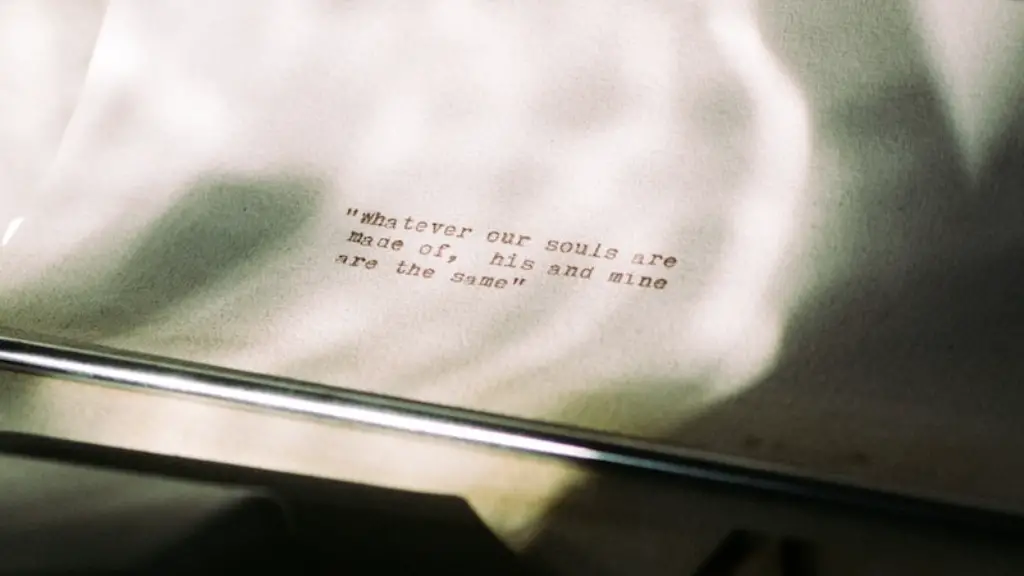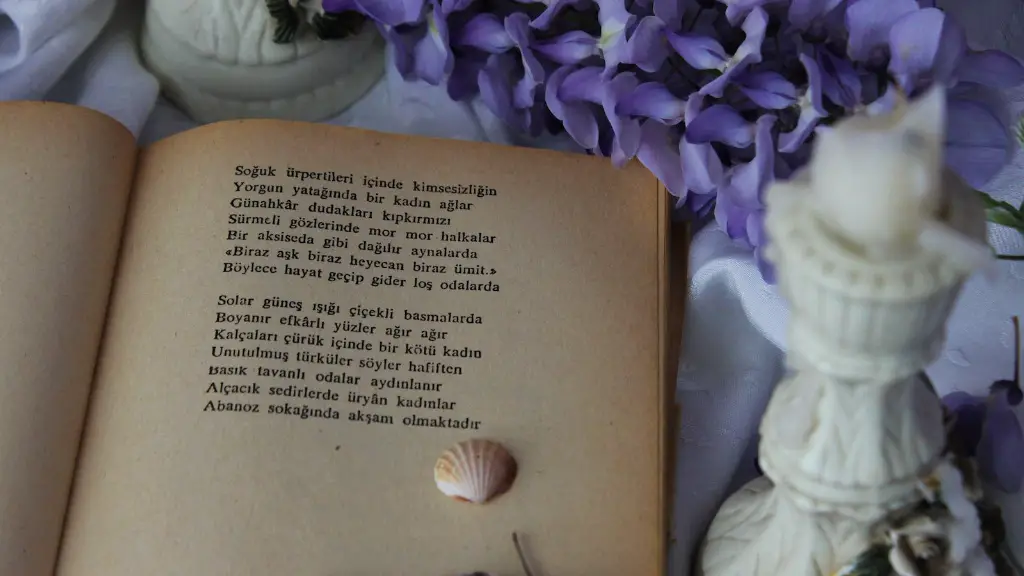The Purpose of Poetry
Poetry serves numerous purposes and can be deemed both expressive and practical. Expressively, poetry entails writing with the purpose of exploring and conveying feelings, thoughts, and meaning. Practically, it can provide structure and guidance to great works of literature. As such, poetry is often seen as both a form of art and a way of writing.
The Benefits of Poetry
Much like any other form of art, poetry may be of great benefit to the writer, possessing both therapeutic and educational attributes. It allows one to express their feelings and interpretations in a creative form and can provide an outlet for the feelings that everyday language may not convey. Poetry is also an educational medium as it can act as a tool to increase one’s knowledge and appreciation of literature.
The Form of Poetry
The structure of poetry is slightly altered to that of standard written language as it often contains more poetic devices, such as imagery, symbolism, and alliteration. Poems vary not only in their structure and composition, but also in their length. Some poems are short and succinct, written in just a few lines, while others may be long and complex. Poems typically involve the use of rhythm and repetition to emphasize certain sentiments, adding to its visual and aural qualities.
Types of Poetry
There are numerous types of poetry, each containing its own set of rules and defining characteristics. Some of the most common involve sonnets, haikus, and odes. Sonnets are typically fourteen lines long and conform to a specific rhyme scheme and structure. Haikus are minimalistic three-line poems consisting of 17 syllables and involving an image or juxtaposition within the lines. Odes are lyrical poems praising and exalting a person, object, or concept.
Determining the Meaning of a Poem
The interpretation of a poem can vary from one reader to another, and even from the poet who wrote it. Determining the meaning of a poem depends on various factors such as the tone, subject, imagery, the use of metaphors, as well as the context of the poem. Thus, analyzing poems may require some experimentation and an open-minded approach.
Appreciating Poetry
Appreciating poetry does not require one to be a great analyst or critic. One needs to be an active reader and be willing to uncover the potential of pieces of work that might not be immediately apparent. More often than not, poetry can be thought-provoking and inspiring. Poetry is yet another form of expression that allows the writer to effectively communicate their ideas and sentiments to their readers.
Influence of Poetry on Literature
Poetry is a fundamental component of literature and often serves as a source of inspiration for writers and poets alike. As a building block to literary works, it can be used to create atmosphere, develop characters, and set the tone of a story. Poems can be used to give depth and emotion to a novel, and by connecting to their readers’ emotions, can widen the scope of the work.
Future of Poetry
Although traditional forms of poetry have been around for centuries, poetry is continuing to evolve. The emergence of new forms of poetry such as spoken word, rap, and slam has attracted many new audiences. Digital platforms such as Instagram and Youtube also allow for creative works to reach a larger audience. Poems can now be found in various forms, demonstrating the evolution of the global literary landscape.
The Creative Element of Poetry
Though there are rules and tools used when writing poetry, the creative element is an important aspect of the process. Creative writing fosters an individual’s ability to identify, experiment with, and express their human experience. Thus, poetry can be a great way to explore and express emotions, while also providing a greater understanding of the art form.
Intersection of Literature and Culture
It is important to note that poetry is not only an art form but is closely interlinked with the culture of the time. Poems often reflects an author’s personal beliefs and values, capturing the cultural sensibilities of the time. Thus, when reading a poem, one must consider not only the author’s individual experience but also the surrounding context.
Interpretation of Poetry
The interpretation of a poem often constitutes debate and disagreement due to the various interpretations of a poem. Therefore, it is essential for readers to seek out other interpretations, as well as to reflect upon and evaluate their own in order to appreciate and provide enlightened discussion.
Continuity of Poetry
Though poetry has been around for centuries, it is continues to evolve and has thus enabled the art form to remain relevant. Many poets are constantly innovating, experimenting with new forms of expression and tackling the issues of the day. As such, it is more important than ever for readers to keep up with modern trends in order to understand and appreciate the work of contemporary poets.
Tools and Techniques of Poetry
Though there are a variety of effective tools and techniques to use when writing poetry, one should be mindful of the use of cliches as they can lessen the impact of the work. Additionally, repetition, rhythm, and alliteration are effective tools to evoke emotion and can be used to create symmetry and increase the impact of a poem.
The Power of Poetry
Poetry can be both powerful and poetic, for it allows for the exploration of life and its events on a deeper level. It is able to transport the reader to a different place entirely and provide them with a different perspective on life. Additionally, the use of metaphors, imagery, and symbolism can draw readers into the world of the poem and can have the power to effortlessly convey meaning and emotion.
Importance of Poetry in Society
Poetry has long been an important part of society, acting not only as an expression of inner feelings and sentiments, but also as a way to engage with the world on a deeper level. It is able to provide comfort in times of hardship, evoke emotions, and increase understanding of one’s own values, perceptions, and humanity.
The Boundaries of Poetry
Poetry does not necessarily have to be confined to certain boundaries or traditions. Rather, poets should be given the freedom to explore and experiment in order to effectively convey their ideas and emotions. Poets should be encouraged to think outside the confines of traditional boundaries, allowing for the art form to reach its full potential.
Influence of Technology and Social Media
In recent years, technology and social media have greatly impacted the way in which poetry is shared. Digital platforms such as Twitter, Instagram, and Youtube, have enabled poets to express themselves in new ways and dramatically widen the reach of their work. Said outlets have thus been incredibly powerful tools for showcasing their work to the world.
